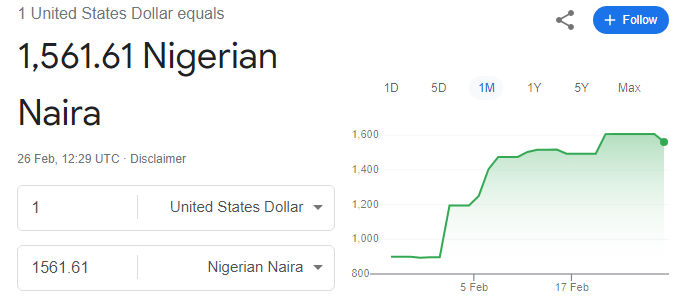
The dollar to naira exchange rate has been a hot topic lately, and for good reason. Anyone keeping an eye on the financial markets knows that the value of the naira has been on a rollercoaster ride, and it’s leaving many people feeling dizzy. In this article, we’ll dive into why the naira seems to be struggling for stability, why it’s been depreciating recently, and what measures the Central Bank of Nigeria (CBN) is taking to try and strengthen it.
Let’s start with the instability of the naira. One of the primary reasons behind this instability is Nigeria’s heavy reliance on oil exports. The global oil market can be incredibly volatile, and any fluctuations in oil prices can have a significant impact on Nigeria’s economy. When oil prices are high, the naira tends to strengthen as the country earns more revenue from exports. However, when oil prices plummet, as we’ve seen happen several times in recent years, the naira takes a hit.
Another factor contributing to the naira’s instability is Nigeria’s import-dependent economy. The country relies heavily on imported goods, ranging from consumer products to machinery and equipment. This means that fluctuations in the exchange rate can directly impact the cost of imported goods, leading to inflationary pressures and further eroding the value of the naira.
In addition to instability, the naira has also been facing significant depreciation in recent times. Depreciation occurs when a currency loses value relative to another currency, such as the US dollar. There are several factors driving the depreciation of the naira, including persistent trade imbalances, weak fiscal policies, and limited foreign exchange reserves. These factors create downward pressure on the naira, making it less attractive to investors and causing its value to decline.
So, what is the CBN doing to address these challenges and strengthen the naira? The CBN has implemented various measures aimed at stabilizing the exchange rate and boosting the value of the naira. One such measure is the use of monetary policy tools, such as interest rate adjustments and open market operations, to manage liquidity in the foreign exchange market. By controlling the supply of foreign exchange, the CBN can influence the exchange rate and prevent excessive volatility.
Additionally, the CBN has introduced several foreign exchange intervention schemes to support critical sectors of the economy and ensure the availability of forex for essential imports. These interventions include the Investors’ and Exporters’ (I&E) window, which provides a platform for investors and exporters to trade forex at market-determined rates, and various loan schemes targeted at key sectors like agriculture, manufacturing, and SMEs.
Furthermore, the CBN has implemented measures to diversify Nigeria’s revenue sources away from oil and promote non-oil exports. By supporting sectors such as agriculture, solid minerals, and services, the CBN aims to reduce Nigeria’s dependence on oil and improve the country’s resilience to external shocks.
While these measures have helped mitigate the depreciation of the naira to some extent, challenges persist, and there’s no quick fix to the underlying structural issues facing the Nigerian economy. Achieving long-term stability and strengthening the naira will require sustained efforts across multiple fronts, including fiscal reforms, investment in infrastructure, and improvements in the business environment.
In conclusion, the dollar to naira exchange rate remains a complex issue with deep-rooted causes and no easy solutions. Understanding the factors driving instability and depreciation is crucial for policymakers, investors, and ordinary Nigerians alike. By working together and implementing sound economic policies, Nigeria can overcome these challenges and build a more resilient and prosperous economy for the future.